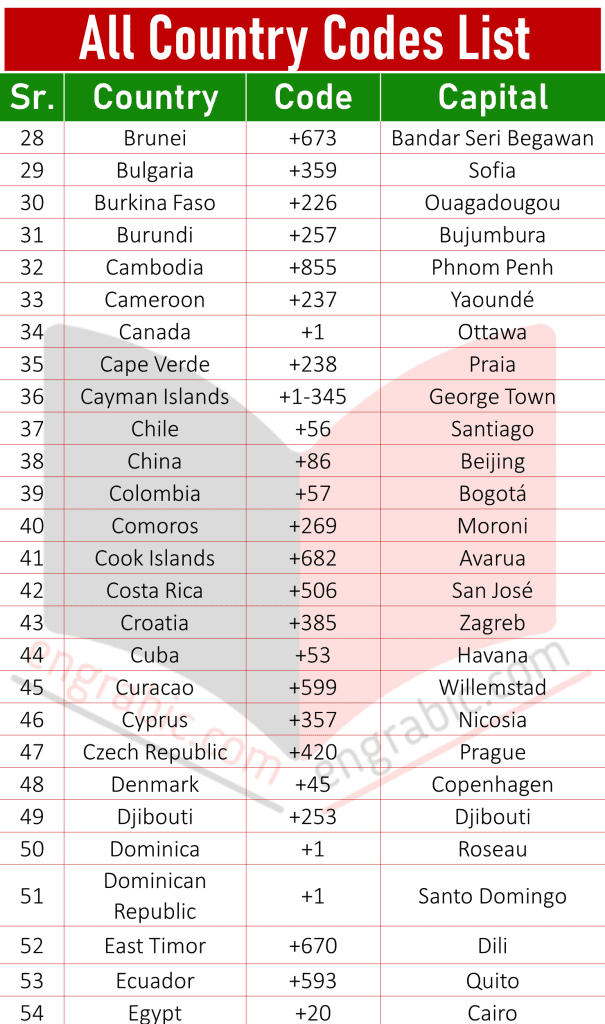Have you ever come across the country code 63 and wondered which nation it represents? In today's interconnected world, understanding international dialing codes is more important than ever. Whether you're receiving a call or sending a message, knowing where that number originates from can be crucial. Let's delve into the mystery of the 63 code and uncover the surprising answer to which country uses it.
Exploring the significance of country codes not only helps in identifying locations but also sheds light on global communication networks. From business transactions to personal interactions, being aware of these numerical identifiers can enhance your global connectivity. So, let's embark on this journey to discover the country behind the 63 code and understand its relevance in today's digital age.
The 49 Pa. Code Chapter 21 discusses regulations under The Professional Nursing Law (63 P.S. §§ 211—225.5). This provision highlights the importance of legal frameworks governing professional practices within the state. By establishing clear guidelines, these laws ensure that nursing standards are maintained and upheld, contributing to public safety and healthcare quality.
This chapter emphasizes the necessity of adhering to specific statutes that define the scope of practice for nurses. It outlines the responsibilities and limitations set forth by the legislature to protect both practitioners and patients. Understanding these regulations is essential for anyone involved in the nursing profession, ensuring compliance with state-mandated protocols.
Furthermore, the implementation of such laws reflects a commitment to maintaining high ethical and professional standards. By addressing potential issues through comprehensive legislation, the state aims to foster an environment where healthcare providers can operate effectively while safeguarding the interests of those they serve.
International Recognition of Legal Frameworks
South Carolina Code Section 63-15-308 recognizes foreign country custody arrangements, treating them as if they were domestic entities. This section underscores the importance of acknowledging international legal decisions within the state's judicial system. Such recognition facilitates smoother cross-border interactions and resolutions, promoting harmony between different legal jurisdictions.
By integrating foreign custody rulings into local law, South Carolina demonstrates its willingness to embrace global perspectives in family matters. This approach not only strengthens international relations but also provides clarity and consistency for families involved in transnational disputes. Recognizing foreign judgments enhances the credibility and reliability of the legal process.
Incorporating international principles into domestic law ensures that all parties receive fair treatment regardless of their location. It fosters cooperation among nations, allowing for more efficient handling of cases that span multiple borders. Ultimately, this inclusive strategy benefits everyone involved by providing equitable solutions based on mutual respect and understanding.
Preventing Deceptive Practices Through Awareness
Scammers often exploit unfamiliarity with international phone numbers, using Philippines' country code +63 for holiday scams. These fraudulent activities typically involve deceptive messages prompting recipients to pay for fictitious services like releasing parcels. Being informed about such tactics is vital to avoid falling prey to these schemes.
Recognizing patterns used by scammers helps individuals stay vigilant against potential threats. For instance, unsolicited texts demanding immediate payment should raise suspicion, especially when originating from unknown international sources. Educating oneself about common scamming techniques empowers users to make better decisions regarding suspicious communications.
Staying updated on current trends in cybercrime enables people to protect themselves and others from becoming victims. Sharing knowledge about prevalent scams contributes to creating safer online environments where trust and integrity prevail. Awareness remains one of the most effective tools in combating fraudulent behavior worldwide.
Understanding Global Communication Prefixes
The prefix +63 identifies calls coming from the Philippines, signifying the country's unique position within international telecommunication networks. As with any unfamiliar international number, understanding its origin aids in making informed decisions about answering or ignoring such calls. Familiarity with country codes enhances global communication efficiency.
When encountering a call from a +63 number, consider whether there might be legitimate reasons for contact, such as business dealings or familial connections. However, exercise caution if the source seems dubious or unexpected. Verifying the authenticity of incoming calls prevents unnecessary risks associated with engaging unknown entities.
Being called from a Philippines country code doesn't automatically imply malicious intent; however, awareness of possible scams involving this prefix equips individuals to handle situations appropriately. Knowledge empowers users to navigate complex global communication landscapes confidently and securely.
Engaging With International Organizations
Agenda Item 25 at ICANN63 focuses on meetings with the country code Names Supporting Organisation (ccNSO), highlighting collaboration efforts among international bodies managing internet resources. These discussions aim to strengthen ties between organizations responsible for overseeing domain names and related services globally. Effective partnerships promote stability and innovation within the digital ecosystem.
ICANN plays a pivotal role in coordinating various aspects of internet infrastructure, including assigning country codes like +63 for the Philippines. Through regular engagement with stakeholders, it ensures consistent application of policies affecting millions of users worldwide. Such interactions foster transparency and accountability in managing critical online components.
Collaborative initiatives undertaken during events like ICANN63 contribute significantly to advancing technological progress while addressing emerging challenges. By working together, diverse groups shape the future direction of internet governance, prioritizing accessibility, security, and inclusivity for all participants.
Regulating Domestic Relations Through Legislation
Chapter 63 of Title 23 - DOMESTIC RELATIONS addresses regulations concerning children and youth social service agencies operating under 55 Pa. Code Ch. 3680. These provisions establish criteria for private agencies providing care and support services to vulnerable populations. Ensuring compliance with established standards guarantees quality service delivery and protection for beneficiaries.
Defining terms like Private agency clarifies expectations regarding operational requirements and responsibilities. Such definitions help eliminate ambiguity, enabling smooth implementation of policies designed to safeguard children's welfare. Clear guidelines facilitate effective monitoring and evaluation processes necessary for maintaining accountability.
Implementing robust regulatory frameworks supports long-term goals of enhancing child protection systems and improving overall outcomes for affected families. By adhering to stringent measures outlined in relevant codes and statutes, service providers uphold commitments to delivering exceptional care aligned with best practices in the field.

